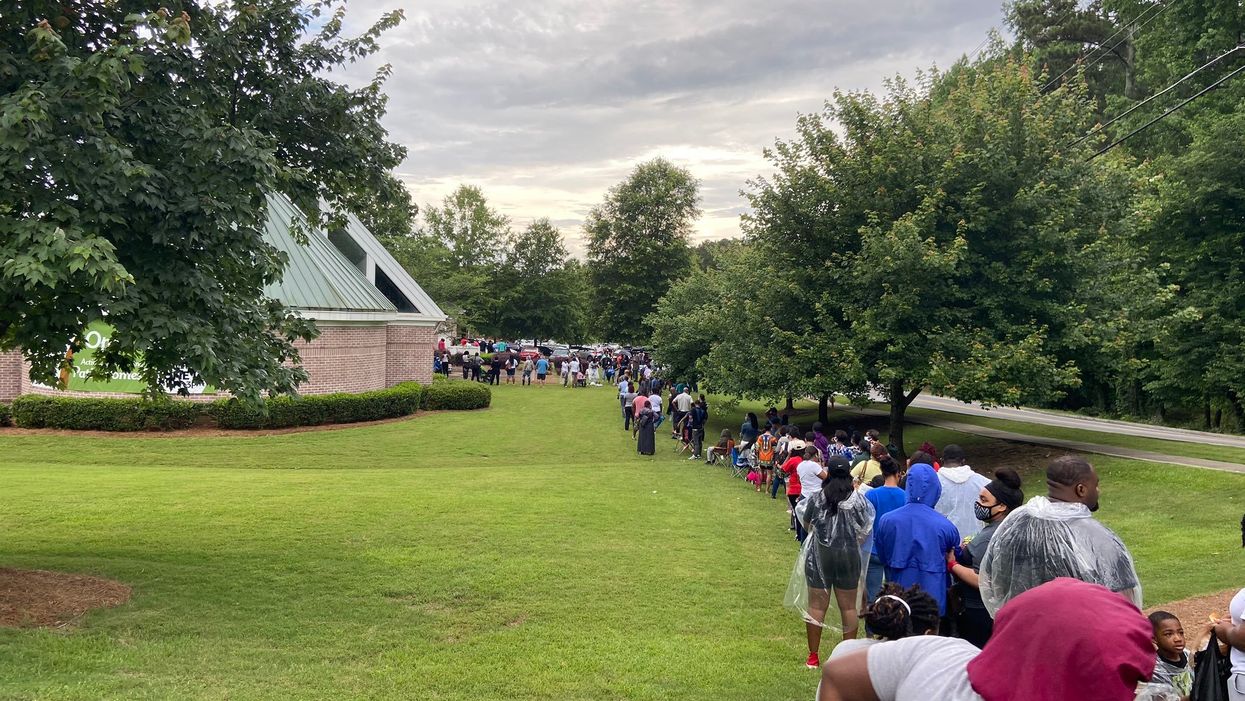Georgia, which has been sued plenty in recent years for allegedly violating the rights of its electorate, is facing a fresh complaint about voter suppression of the most obvious kind: Making people stand in line for hours to exercise their democratic rights.
The lawsuit, filed in federal court Thursday, is the latest development in the courthouse crusade to make it easier to vote in the presidential election.
In neighboring Alabama, a state judge this week dismissed a lawsuit that sought to ease voting rules for the elderly and disabled. And Friday saw the latest in a series of suits, this time in Pennsylvania, seeking to guarantee a do-over for people who make mistakes on their absentee ballot forms.
These are the latest developments:
Georgia
The new suit will gain particular notice because of the state's evolution into one of the most prominent political battlegrounds of the year. The contest for the state's 16 electoral votes is now a tossup, an array of recent polls shows, and in an unusual twist both Senate seats are on the ballot this fall and have become highly competitive. So Georgia's turnout has taken on extraordinary importance.
The state Democratic Party and the party's Senate campaign arm are convinced their candidates will do best with as many people voting as possible. Their suit says the long lines that forced people to wait upwards of eight hours in stifling heat to vote in the June 9 primary violated the Constitution.
Sara Alami of Fulton County, which takes in much of Atlanta, arrived at her polling place half an hour before the doors opened — and still had to wait six hours. Another resident of the county, 71-year-old Lucille Anderson, gave up trying to vote after confronting the long lines at her polling place three times — in the morning, midafternoon and evening.
Two years ago voters in Georgia waited to vote longer than in any other state, a full 2.5 times the national average, according to the suit.
The Democrats allege the long lines were because of the reductions in the number of polling places, late opening of polling places, not enough voting machines, not enough technicians to fix broken machines and poor training. They asked a judge to order all those problems get fixed before November.
Pennsylvania
The newest litigation in the battleground state mirrors those in several other such presidential tossups, where the rate of absentee ballot rejection could prove decisive in November.
The suit asks a federal judge to require that voters be notified if their ballots get rejected because the signature line on the envelope is blank or the handwriting does not match what's on file at the election office — and be given a chance to remedy the problem.
"Pennsylvania must create a uniform process to let voters fix signature-related issues with their mail-in ballots in order to give people confidence that their vote is being counted," said Paul Smith of the Campaign Legal Center, which sued on behalf of the League of Women Voters, the League of United Latin American Citizens Council and the Urban League of Greater Pittsburgh.
Alabama
Civil Court Judge J.R. Gaines of Montgomery on Wednesday threw out a lawsuit filed by the League of Women Voters and several sick or elderly citizens. It said the health of voters during the pandemic was illegally threatened by the requirement for two witnesses or a notary to countersign an absentee ballot envelope.
The judge said the suit raised political issues that shouldn't be decided in the courts. He also said the plaintiffs had no legal standing to file the suit and that the election officials were protected from being sued.




















Trump & Hegseth gave Mark Kelly a huge 2028 gift